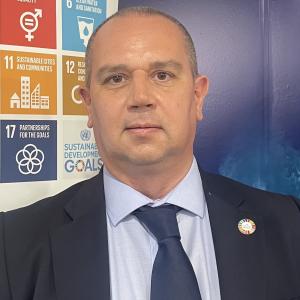Jamaican Economy Panel Commends Reduction in Youth Unemployment and Debates Options for its Continued Decline
09 October 2023
Today, the Jamaican Economy Panel (JEP) publishes its nineteenth survey on Enhancing Employment Opportunities for Jamaica’s Youth.
The JEP panellists were asked about how COVID-19 has impacted the labour market, what challenges, and opportunities are faced by Jamaica’s youth, and the potential options available to policymakers and development practitioners to support employment for Jamaica’s youth in the coming years.
Like many Small Island Developing States (SIDS) across the Caribbean, providing sufficient labour market opportunities, particularly for youth (15 to 24 years), continues to be a challenge for Jamaica.
Over the past decade, official statistics show that the average overall unemployment rate has been in double digits (11% from April 2013 to April 2021), which for youth has been much higher at 27%. In recent years, the trend has been decreasing, but unemployment remains high for Jamaica’s youth. An interesting development in Jamaica's labour market has been the convergence in unemployment rates between men and young women. This has been so significant that in July 2022, the unemployment rate among young women fell to below that of young men. A marked departure from the trend.
Dr. Nadine McCloud, Senior Lecturer, Department of Economics, University of the West Indies Mona, stated “High and persistent youth unemployment undoubtedly cast significant costs on individuals and society. Young people face a double-edged sword. On the one hand, young people have fewer years of work experience; are uncertain about their niche, operate in smaller networks, and if employed, are less costly to replace compared to more experienced adult counterparts in comparable industries. On the other, they are technologically agile and receptive to new skills, which in this digital era, can offer Jamaica a demographic net dividend.”
Responding to the survey results, Mr. Dennis Zulu, United Nations Resident Coordinator, agreed that “addressing youth unemployment necessitates a collaborative effort between the public and private sectors, fostering opportunities for our youth through diverse initiatives and programs to achieve SDG-8 in Jamaica.” He emphasised that “it is essential for the United Nations to partner with the government, working in tandem to champion gender equality, poverty reduction, and the promotion of decent work and economic growth through strategic partnerships.”
Overall, the JEP Panellists' discussion concluded that youth unemployment in Jamaica remains a complex and difficult problem to solve.
“Root and branch approaches will be needed to both bridge employers current as well as future needs from their workforce to remain competitive both domestically and internationally,” Dr. Stuart Davies, UN Senior Economist, said.
“Enhancing the skills of young people to ensure that they are best equipped to reach their full potential, is crucial to Jamaica’s economic transformation, future prosperity, and strategy to deliver on its Sustainable Development Goals, particularly SDG-8: Decent Work and Economic Growth,” Dr. Davies added.
The Jamaican Economy Panel is part of a partnership between the United Nations Resident Coordinator’s Office (UNRCO) and the Department of Economics at the University of the West Indies (UWI) Mona. The JEP brings together economic, public-sector experts and development practitioners to address monthly socio-economic questions. These questions help to highlight relevant economic issues and the collective expertise of the panellists.
For more information on the Jamaican Economy Panel and for the results of this JEP discussion, visit here.

Dr. Nadine McCloud








